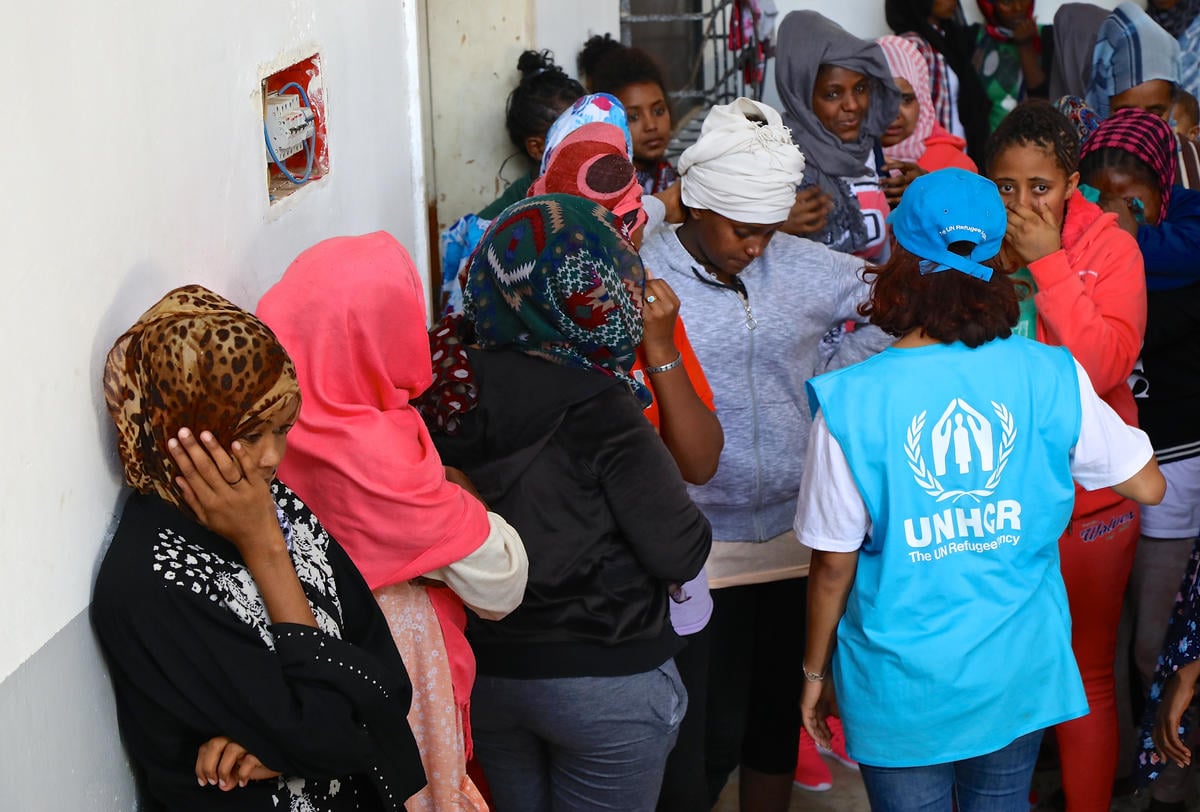Situation in Darfur seriously degenerating, says Guterres
Situation in Darfur seriously degenerating, says Guterres

GENEVA, October 25 (UNHCR) - The UN High Commissioner for Refugees António Guterres has said that the situation in the Darfur region of Sudan is once again deteriorating sharply, and warned that a further calamity could take place there very soon, which might have "a devastating impact" on neighbouring countries as well as on the situation in other parts of Sudan.
"What we are witnessing on the ground is a very serious degeneration of the situation," he told reporters and other guests at an event in London to mark the international launch of a DVD of the 'Voices for Darfur' concert. "... It is extremely nasty, with ugly events."
The security situation has deteriorated tremendously within the past six weeks, especially in West Darfur, with ambushes, hostage-taking and attacks on villages as well as on the Aro Sharow camp for displaced people that left 34 displaced people and local villagers dead. Aid workers increasingly are the focus of attacks. Humanitarian agencies say this is seriously hampering their capacity to operate on the ground.
Guterres, who visited Darfur two months ago, said at that time he was optimistic that, though not easy, peace would be possible in Darfur, and that if it came about it would have a beneficial impact on the rest of the country.
"You have three different crises at the moment," he said. "South Sudan, where peace was established based on the sharing of oil revenues; you have Darfur, and you have eastern Sudan, where the implications are also in relation to the neighbours and the problem between Eritrea and Ethiopia."
"Darfur ... in my opinion is the key for success or failure for Sudan as a whole," he said. "If there is success in Darfur, it will have a positive impact for coordinating a peace agreement in the south and for allowing peace to develop in the east."
But the reverse, he warned, would probably produce the opposite result: "If it gets worse in Darfur, it will deteriorate, and even in the south the agreement will be weakened."
He expressed deep concern about the possible adverse effect on other countries in the region, especially Chad, which already hosts more than 200,000 Sudanese refugees from Darfur.
As a result of a number of recent security incidents, the UN decided on October 11 to relocate non-essential staff out of part of West Darfur as a precautionary measure. It is hoped that this is a temporary measure and work can resume in the near future. Much will depend on the extent to which the Sudanese government can guarantee security for displaced people and aid workers on its territory.
UNHCR has been present in West Darfur since June 2004, with offices in El Geneina, Zalinge, Mukjar and in Nyala (south Darfur). There are 40 international staff and 37 national staff working in those offices. Depending on the security situation, an additional five offices will be opened to enhance protection monitoring coverage and better assist the displaced people.
Guterres made his comment at an event to mark the launch off the DVD of a recent all-star charity concert on behalf of refugees from Darfur, and to thank the singers who took part.
One of them, Greek opera star Mario Frangoulis, told UNHCR staff at the agency's headquarter in Geneva on Monday that his own planned visit to Darfur had been cancelled because of the security situation. However, he insisted he wants to keep "the flame alive," and spread awareness of the problem in Darfur and UNHCR's work there. All the artists who took part in the concert, as well as those such as Sade, David Gray and Franz Ferdinand, who contributed exclusive material to the DVD, were fully engaged he said and wanted to do what they could to draw attention to the plight of the victims of the Darfur conflict.
Out of the $31 million required for UNHCR's activities in 2005, contributions of only $14.4 million have been so far received.









